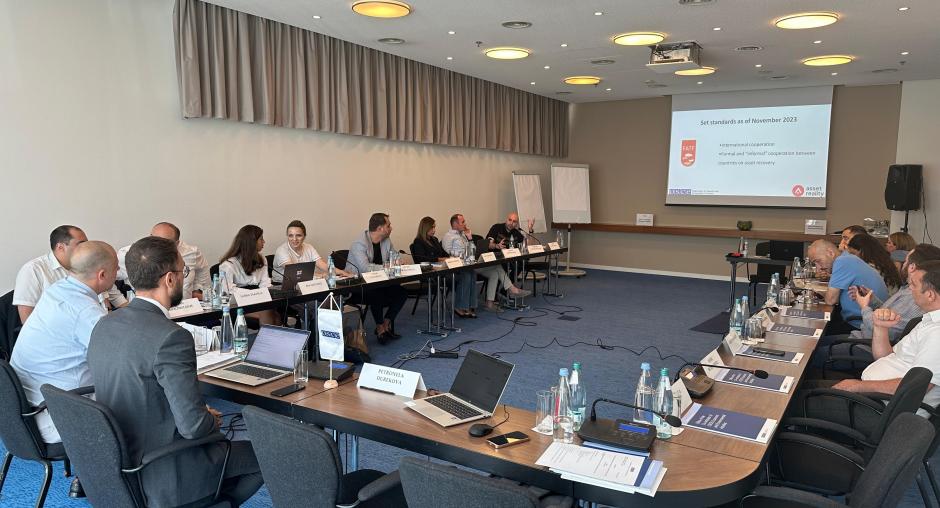Strengthening capacities in managing seized and confiscated virtual assets in Georgia

Effective management of seized and confiscated virtual assets is critical to combating the risks associated with cryptocurrencies, such as money laundering, terrorist financing, and fraud. With the aim to bolster Georgia’s capacities in this area, the Office of the Co-ordinator of OSCE Economic and Environmental Activities (OCEEA) organized a specialized training session in Tbilisi from 15-16 July. The session brought together 20 representatives from law enforcement and supervisory bodies to enhance their expertise in handling and managing seized and confiscated virtual assets.
Participants were introduced to advanced techniques and practical skills, including methods for managing and handling seized virtual assets, case studies of real-world scenarios, and best practices from other jurisdictions. They also received information on specialized asset management solutions, providing them with the necessary knowledge and tools to effectively navigate the complexities of digital asset management.
“One of OCEEA’s top priorities is ensuring Georgia's ability to address financial crime, particularly crimeinvolving virtual assets. We work closely with Georgian national agencies to combat financial crime, with a strong focus on money laundering. We are pleased to see the significant interest in this topic,” said Kurban Babayev, Economic Adviser at OCEEA.
This training is part of an OSCE extra-budgetary project titled “Innovative Policy Solutions to Mitigate Money-Laundering Risks of Virtual Assets,” funded by Germany, Italy, Poland, Romania, the United Kingdom, and the United States. The project aims to support OSCE participating States in building national capacities to mitigate the criminal risks associated with virtual assets.
